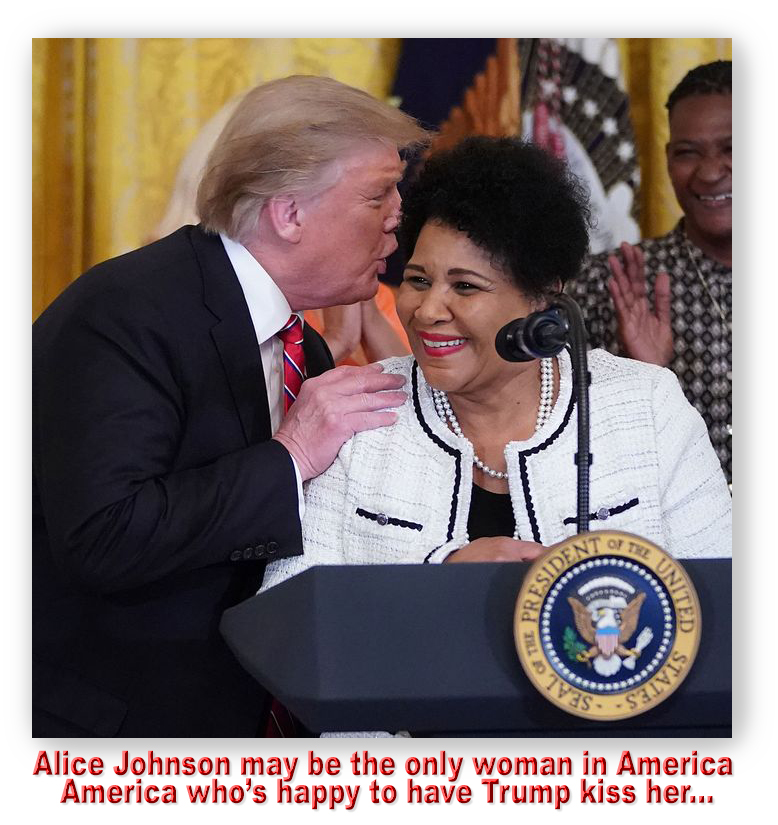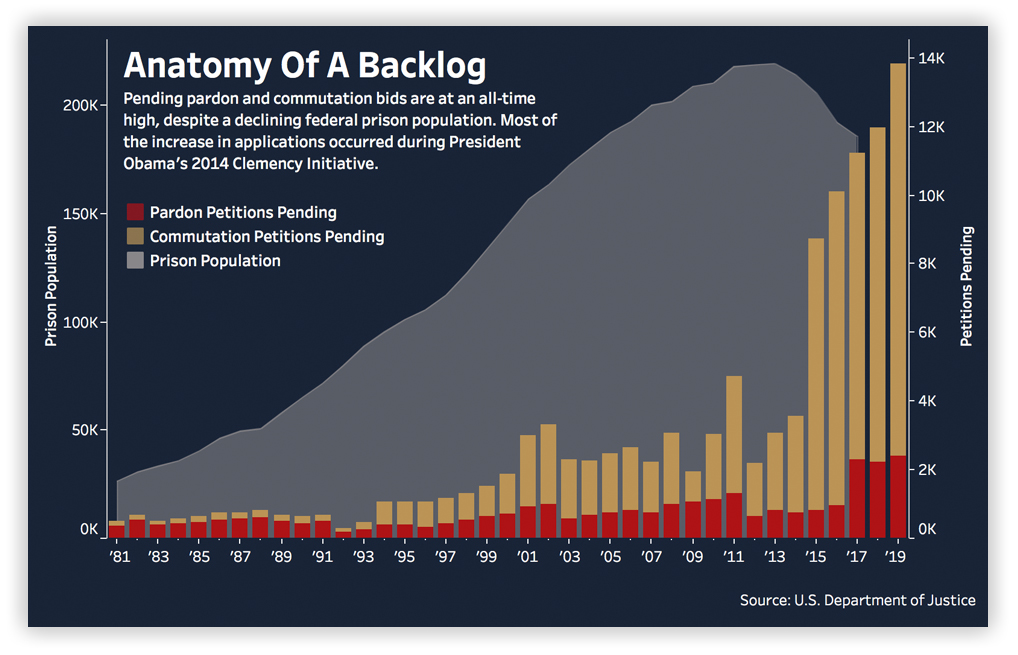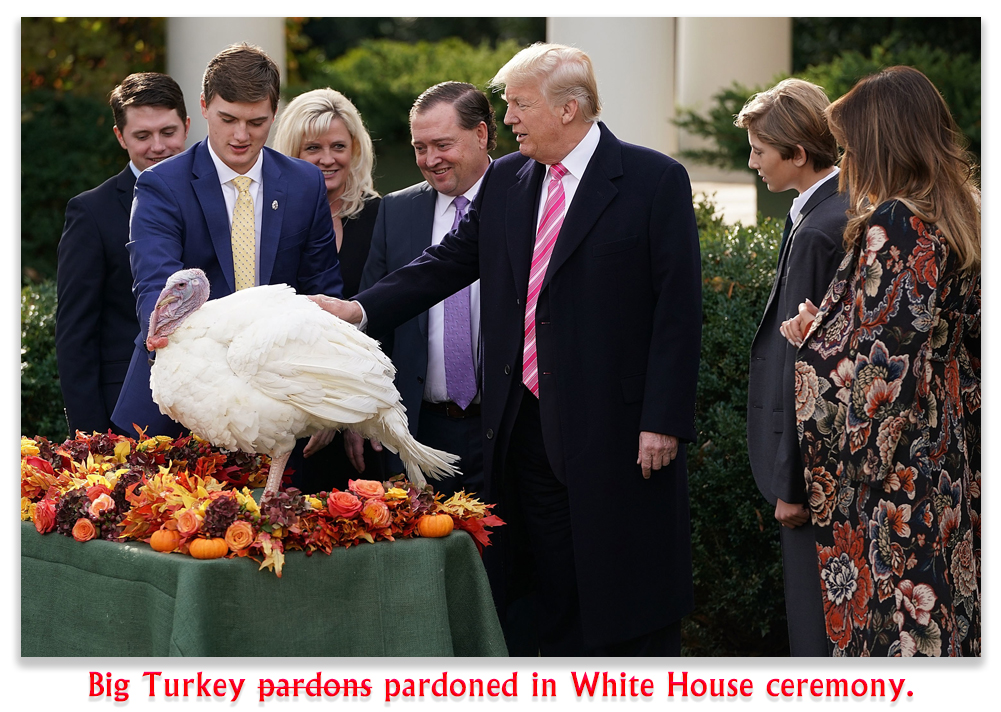We post news and comment on federal criminal justice issues, focused primarily on trial and post-conviction matters, legislative initiatives, and sentencing issues.

IT’S WHO YOU KNOW…
 A week ago today, President Donald J. Trump pardoned 15 people and commuted the sentences of five more. The next day, he pardoned 26 more people and commuted three additional sentences. And sources say there are more to come…
A week ago today, President Donald J. Trump pardoned 15 people and commuted the sentences of five more. The next day, he pardoned 26 more people and commuted three additional sentences. And sources say there are more to come…
That’s the good news for federal inmates. The bad news is this: virtually everyone receiving clemency was supported by political figures or friends of the President. Perhaps the least celebrity of the lot was Alice Johnson, who was released from a drug conspiracy sentence in 2018 after Kim Kardashian lobbied Trump.
Alice has apparently become a Trump favorite after speaking at the Republican Convention last August (after which the President raised her commutation of sentence to a full pardon). Alice is using her access to successfully recommend a number of people for clemency (and who can blame her… she’s looking out for people she did time with, something anyone who’s ever been locked up understands).
But Alice’s support of average inmates she knew while doing 20 years aside, Politico said “the raft of pre-Christmas pardons and commutations… favored the well-connected and those with A-list advocates, while appearing to shunt aside — at least for now — more than 14,000 people who have applied for clemency through a small Justice Department office that handles such requests.
 None of the clemency applications granted last week went through the Dept of Justice Office of Pardon Attorney. The New York Times reported that more than half of the cases granted did not meet the DOJ’s standards for consideration. “It looks as if the president is relying very heavily on recommendations from members of Congress and people he knows personally and not on the Justice Department pardon process that’s served presidents well for 150 years,” said Margaret Love, who served as pardon attorney under two presidents.
None of the clemency applications granted last week went through the Dept of Justice Office of Pardon Attorney. The New York Times reported that more than half of the cases granted did not meet the DOJ’s standards for consideration. “It looks as if the president is relying very heavily on recommendations from members of Congress and people he knows personally and not on the Justice Department pardon process that’s served presidents well for 150 years,” said Margaret Love, who served as pardon attorney under two presidents.
 (Editor’s note: The DOJ pardon process has been a clattering disaster, despite what Ms. Love says, a classic illustration of the fox being placed in charge of deciding whether any chickens should be spared from being eaten. But replacing it with a process favoring only the friends [or friends of the friends] of the President is not an improvement.)
(Editor’s note: The DOJ pardon process has been a clattering disaster, despite what Ms. Love says, a classic illustration of the fox being placed in charge of deciding whether any chickens should be spared from being eaten. But replacing it with a process favoring only the friends [or friends of the friends] of the President is not an improvement.)
A tabulation by Harvard Law School professor Jack Goldsmith found that of Trump’s 45 pardons or commutations before last week, 88% went to people with personal ties to the president or to people who furthered his political aims. The pardons “continue Trump’s unprecedented pattern of issuing self-serving pardons and commutations that advance his personal interests, reward friends, seek retribution against enemies, or gratify political constituencies,” Goldsmith told The New York Times. “Like his past pardons, most if not all of them appear to be based on insider recommendations rather than normal Justice Department vetting process.”
The President “has largely overridden a highly bureaucratic process overseen by pardon lawyers for the Justice Department and handed considerable control to his closest White House aides, including Kushner,” Report Door said. “They, in turn, have outsourced much of the vetting process to political and personal allies, allowing private parties to play an outsize role in influencing the application of one of the most unchecked powers of the presidency.”
 Trump’s son-in-law and top adviser, Jared Kushner, has played a key role in managing the avalanche of clemency requests that have come into the White House as the administration nears its end next month, according to multiple sources, Yahoo News reported. “Everyone’s sending emails to Jared,” a source familiar with the process reportedly said. “If you want to make something happen, go to Jared.”
Trump’s son-in-law and top adviser, Jared Kushner, has played a key role in managing the avalanche of clemency requests that have come into the White House as the administration nears its end next month, according to multiple sources, Yahoo News reported. “Everyone’s sending emails to Jared,” a source familiar with the process reportedly said. “If you want to make something happen, go to Jared.”
The source, who requested anonymity due to the sensitivity of the ongoing process, spoke with Yahoo News before Trump issued the spate of pardons and commutations. “It’s going to be a free-for-all,” the source said.
Kevin Ring, president of criminal justice reform group FAMM, told The New York Times he was optimistic that Mr. Trump would still consider average and unconnected inmates, the kind of people his group backs. He predicted that the clemencies to come over the remaining three weeks of Trump’s presidency will include “head-scratchers mixed in with the ones that look good.”
Yet despite the likelihood of clemencies to come, criminal justice activists are not encouraged by Trump’s spotty and sparse record to date. Goldsmith said the president “is stingy” with his pardon power, “even as he abuses it.”
The White House, Statement from the Press Secretary Regarding Executive Grants of Clemency (December 22, 2020)
The White House, Statement from the Press Secretary Regarding Executive Grants of Clemency (December 23, 2020)
Politico, Trump’s latest batch of pardons favors the well-connected (December 22, 2020)
The New York Times, Trump Pardons Two Russia Inquiry Figures and Blackwater Guards (December 22, 2020)
Report Door, Behind Trump Clemency, a Case Study in Special Access (December 26, 2020)
Yahoo News, Jared Kushner played a key role in White House pardon ‘free-for-all’ (December 24, 2020)
The New York Times, Outside Trump’s Inner Circle, Odds Are Long for Getting Clemency (December 28, 2020)
– Thomas L. Root






















